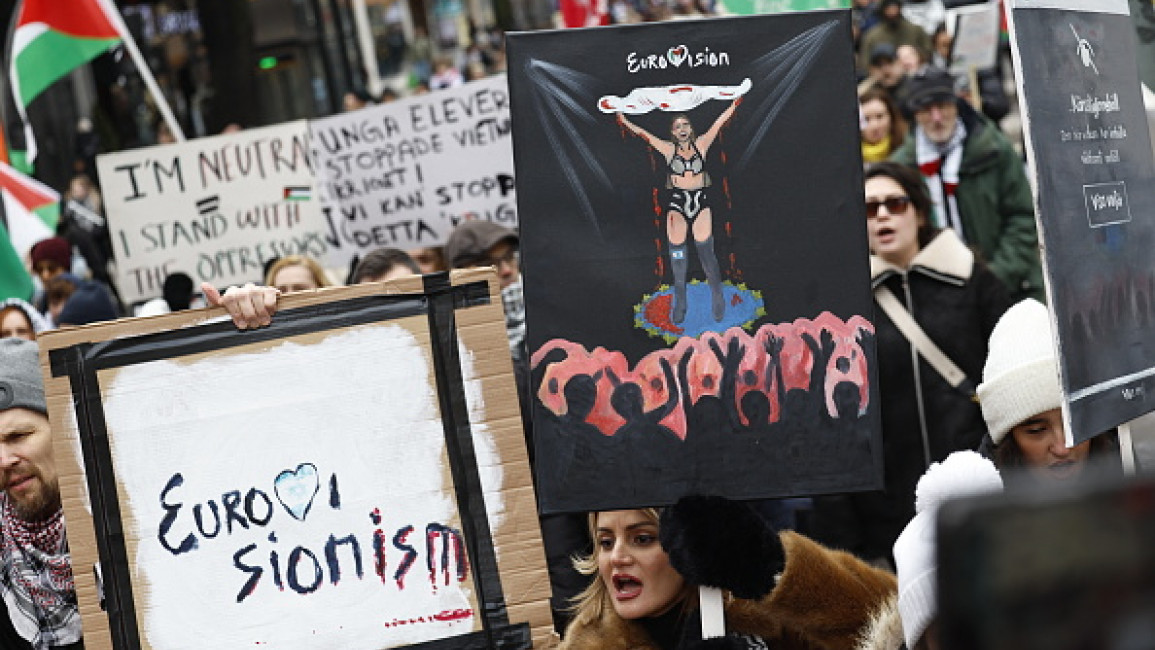Israel to withdraw from Eurovision if Gaza song 'October Rain' is banned
The Israeli state broadcaster Kan said on Wednesday that Israel will withdraw from Eurovision 2024 if they are asked to change their chosen song due to its controversial political content.
The European Broadcasting Union (EBU), which is the body responsible for governing Eurovision, confirmed earlier on the same day that it was "scrutinising" Israel’s chosen song due to its lyrical content.
"The EBU is currently in the process of scrutinising the lyrics, a process which is confidential between the EBU and the broadcaster until a final decision has been taken," a spokesperson said to The Huffington Post.
"If a song is deemed unacceptable for any reason, broadcasters are then given the opportunity to submit a new song or new lyrics, as per the rules of the Contest."
It is now believed that the EBU will disqualify the song unless changes are made.
Earlier in the week, Israeli media reported that the song chosen for the competition to be held in Malmo in May allegedly has the provocative title of 'October Rain' and makes overt references to the events of 7 October.
The song, performed by Russian-Israeli singer Eden Golan, has not been released to the public.
Under the EBU's rules, entries to the competition are not permitted to promote or refer to policies or events of a political nature.
In response to the scrutiny of the Israeli song by the EBU, Kan, which is responsible for the selection of the country's entry, said: "We will not change the words or the song, even at the cost of Israel not participating in Eurovision this year."
Israel's decision not to comply with the EBU would see Israel follow in the footsteps of Belarus, which in 2021 voluntarily withdrew from the competition after the lyrics of its entry were deemed too political.
Israel's place in this year's contest is already controversial, with thousands of singers, politicians, activists and even state broadcasters across Europe calling for the EBU to ban the country due to its brutal war on Gaza.
Almost 30,000 Palestinians have been killed by Israel since October last year, the vast majority of whom are women and children, with much of the Strip rendered uninhabitable by Israel’s ground and air assault. In January, the UN’s highest legal body ruled that Israel was plausibly committing genocide in Gaza.
Despite this, earlier this month the EBU confirmed it would not ban Israel, which many critics say runs contrary to its decision in 2022 to bar Russia from the competition over its invasion of Ukraine.
Reacting in support of Kan's decision not to change the song, Miki Zohar, Israel's culture and sports minister, said on Wednesday that "the intention of the European Broadcasting Union to disqualify the Israeli song for Eurovision is scandalous".
Kan, in a separate statement, said the song "expresses the feelings of the people and the country these days, and is not political".
"I call on the European Broadcasting Union to continue to act professionally and neutrally and not to let politics influence art," the broadcaster added.



